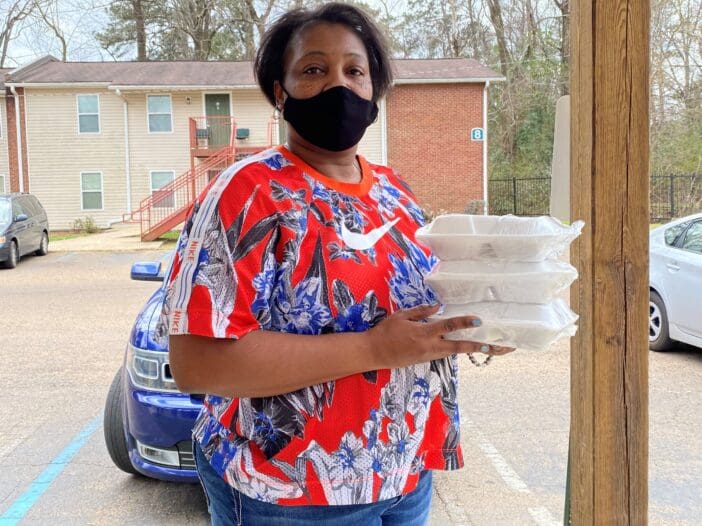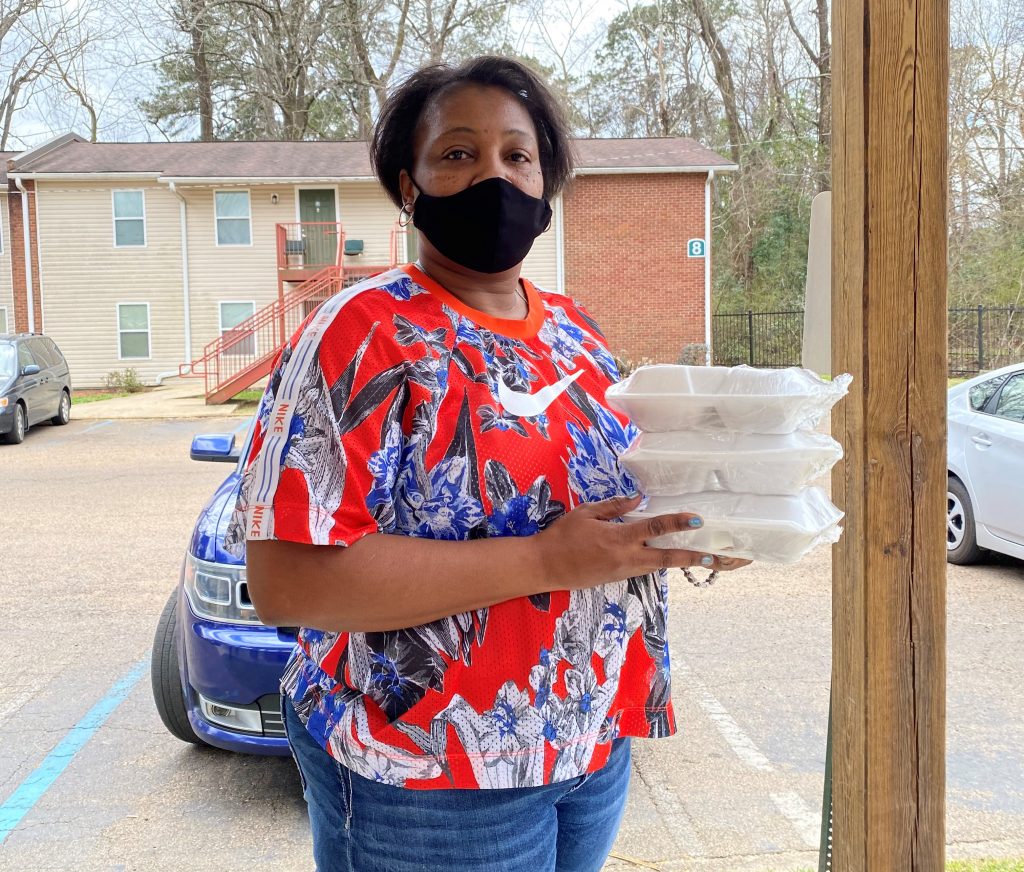

Springboard To Opportunities has always emphasized the importance of direct service work paired with policy and systemic change. Good policy cannot exist without the voices and stories of those in communities and direct service work only has lasting impact when strong policies, informed by the real lives and experiences of those historically most marginalized and overlooked, back them up. This important interplay has been especially central for us in these past few weeks.
Jackson has been experiencing an ongoing water crisis following the winter storms in February that froze the aging water system for several days. Even after the ice thawed, continued shifts in the ground caused water main breaks, delaying water restoration efforts further. While most parts of the city have water again, almost everyone remains under a boil water notice. Bottled water has been difficult to impossible to find and boiling enough water for drinking, cooking, washing dishes, and other needs for a family is overwhelming.
We immediately leapt into action as families expressed their water and food needs, and we are thankful for an incredible community response by so many. Alongside several partners, we were able to distribute over 1,100 cases of water to families and more than 1,500 hot meals over the last several weeks.
It has been amazing to witness the way the community came together to support families during this time, and we are grateful for new and continued partnerships that made this possible. But we also know without systems-level changes and major infrastructure upgrades that will require cooperation and support from all levels of government, this will likely happen again. And we know it is important for all members of the community, especially those in the hardest hit communities, to be included in this conversation.
On a national level, we are also seeing how critical the connection between direct services and policy can be. The landmark legislation of the recently passed American Rescue Plan has the possibility to reshape our social safety net system in remarkable ways, including expanded access to food, healthcare, and housing supports that center people as opposed to organizations. But perhaps most exciting for us was the expansion of the Child Tax Credit, which provides additional cash to low-income families without work requirements or restrictions on use. Instead of coming in one fell swoop as the current tax credit comes, it will come at regular intervals, most likely monthly, essentially providing families with a guaranteed income based on the number of children in their home.
It was not lost on us (and hopefully not on you!), how similar this policy is to our guaranteed income program, The Magnolia Mother’s Trust. The intent of our program was always to produce research and analysis that could influence policy on a federal level. While we recognize our program has been life-changing for so many women, we know the problematic systems that entrap families across the country in poverty cannot be solved by one program alone. Though the provision in the act is temporary, we believe there is a real opportunity to move toward permanent legislation and reshape the social safety net as we know it.
This policy makes our work regarding guaranteed income even more critical. As we announced a few weeks ago, we are embarking on our third iteration of The Magnolia Mother’s Trust with another group of 102 women. We will be continuing with a robust evaluation of the program to understand the experience of the mothers throughout the year. We will be able to show on a human and community level how a guaranteed income and policies like the expanded Child Tax Credit can be life-changing for families. We will have data to show the effects on work, healthcare, children’s school performance, and the ability to care for one’s own family. And most importantly, we will have mothers whose stories and expertise can be utilized to ensure permanent policy is shaped by their voices, creating inclusive policies that support all people.
As always, our commitment is to centering the voices of our families, and we trust them to know what they need both in programs and services and in supportive policies. We feel very hopeful about the possibilities that exist for the next 12 months, and we look forward to working alongside them and all of you to advocate for systems and programs that center trust and dignity and bring about real equity and opportunity for all families.
